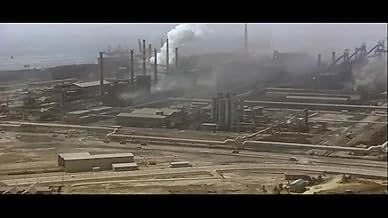The Japanese title "Kazoku" means "Family", but the story is what unlikely happens for ordinary families. A family of husband, wife, a boy, a baby girl and husband's father moves from a small island of Kyushu, where the husband worked for a small subcontractor of a coal mining company, to a livestock farm in eastern end of Hokkaido. Furthermore, they are Catholic, less than 1% of Japanese population.
The writer and director Yamada Yoji was 38 when he started to take the film. I don't know which he first determined, the title or the story. Perhaps he first wanted to portray something about families, then came up the story.
The husband has a dream to work without being ordered nor managed, but he lacks reality thinking. He is brave toward future issues, but is short-sighted and lacks decision toward present issues. The performance of Igawa Hisashi acting as such husband is superb. The wife is reluctant on his idea, but once she makes her mind to go to Hokkaido with him and their children, she acts pro-actively. Baisho Chieko acts the wife with superb performance too. Only flaw is that she is too beautiful. Every time they make an argument, the wife has solid opinion and it ends up the husband, as the head of the family, roars in temper.
On the IMDb web site I found the USA title was "Where Spring Comes Late". This makes sense to imply its happy ending where spring comes in June, after the tragic hard travel. But this title intently avoids original idea to portray tragedy and happiness of a family.
This film was released in 1970, in the era of high economic growth of Japan. You see many things that represent 1970 of Japan: Expo '70 held in Osaka, newly construct big factories, small family cars, crowded underground shopping mall, etc. It looks like present days in China.























